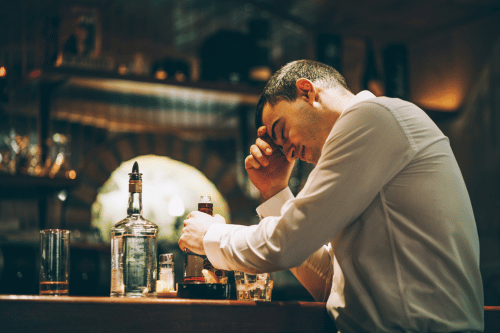Why Are Benzos Addictive?
Benzodiazepine drugs, often referred to as benzos, are prescription medications used to treat anxiety disorders, insomnia, muscle spasms, and even seizure disorders. Despite their effectiveness, they have a dark side: their potential for addiction. Understanding the question, “why are benzos addictive,” requires an in-depth look at their impact on brain chemistry, the ways in which they are prescribed, their misuse, and the effects of long-term use. This article delves into these aspects, explores the dangers of benzodiazepine addiction, and explains the treatment options available for those suffering from addiction.
What Are Benzodiazepines and How Do They Work?

Benzodiazepines are classified as sedative-hypnotic drugs, meaning they have a tranquilizing effect on the central nervous system. They are often prescribed for individuals dealing with anxiety disorders or panic disorders and work by enhancing the activity of gamma-aminobutyric acid (GABA), a neurotransmitter that helps slow brain activity. By increasing the calming effects of GABA, benzodiazepines help alleviate symptoms of anxiety, reduce muscle tension, and promote sleep.
Benzodiazepines are classified as Schedule IV controlled substances, which indicates that while they have legitimate medical uses, they also have a potential for abuse and addiction. These drugs are commonly prescribed under names like Xanax (alprazolam), Valium (diazepam), Ativan (lorazepam), and Klonopin (clonazepam). In addition to treating anxiety and insomnia, benzos are often used as part of treatment for seizure disorders and to manage alcohol withdrawal symptoms. However, combining benzodiazepines with alcohol can lead to significant risks of drug alcohol abuse, increasing the likelihood of dependency and severe psychological ramifications.
Why Are Benzos So Addictive?
The answer to why benzos are addictive lies in their powerful effect on the brain. Benzodiazepines are often prescribed for various types of anxiety disorder, stimulating the GABA receptors in the brain, leading to a reduction in overall brain activity and a sensation of calmness. While this effect is beneficial for people suffering from severe anxiety or panic attacks, it can become dangerous over time as the brain starts to rely on the drug to function normally.
After prolonged use, the brain begins to adapt to the presence of benzodiazepines, requiring higher doses to achieve the same level of calmness and relief from anxiety. This process is known as tolerance, which leads many individuals to take more of the drug than prescribed, increasing the risk of addiction. Over time, this can lead to benzodiazepine dependence, where a person needs the drug just to function normally.
In addition to tolerance, prolonged use of benzodiazepines can lead to physical dependence, meaning the body becomes so used to the drug that it experiences withdrawal symptoms when the drug is not present. These withdrawal symptoms can range from mild anxiety and insomnia to more severe symptoms like seizures and psychosis, making it extremely difficult for individuals to stop using benzodiazepines without medical assistance.
The Risk of Benzodiazepine Misuse and Abuse

Although benzodiazepine drugs are typically prescribed for short-term use, many people end up using them for months or even years. This long-term use significantly increases the risk of benzodiazepine abuse. Prescribed benzodiazepines are often misused when individuals take them more frequently or at higher doses than prescribed, in an attempt to manage stress or anxiety without consulting their healthcare provider.
Benzodiazepine misuse can also occur when individuals take the drug to achieve a sense of euphoria, particularly when combined with other substances such as alcohol or opioids. Combining benzodiazepines with other depressants increases the risk of dangerous side effects, including respiratory depression, overdose, and even death.
Polydrug abuse is a common issue among individuals addicted to benzodiazepines. The combination of benzos with other substances like alcohol, opioids, or other sedative hypnotic drugs can amplify their effects, leading to more intense feelings of relaxation or euphoria. However, this also significantly increases the risk of overdose and other life-threatening complications.
How Common Is Benzodiazepine Dependence?
Benzodiazepine addiction is a growing problem worldwide, and the rates of benzodiazepine abuse have increased in recent years. Studies have shown that individuals who are prescribed benzos for more than a few weeks are at a much higher risk of developing dependence and addiction. According to the National Institute on Drug Abuse, approximately 30% of opioid overdose deaths in the U.S. involve benzodiazepines, highlighting the dangers of polydrug abuse. Drug alcohol abuse is also prevalent among those addicted to benzodiazepines, compounding the risks and complications associated with these substances.
While benzos are often seen as safe when used for short-term treatment, the reality is that they can be incredibly addictive, especially when taken over long periods or in higher doses. In fact, research shows that up to 44% of long-term users become dependent on benzodiazepines, and many struggle to quit due to the severity of withdrawal symptoms.
The Role of Prescribing Practices in Addiction
One of the key factors contributing to benzodiazepine addiction is how these drugs are prescribed for anxiety disorder. Commonly prescribed medications like Xanax and Valium are often given to patients for the treatment of anxiety or insomnia. However, many physicians may continue to prescribe these drugs for months or even years, despite guidelines recommending short-term use. This extended prescribing increases the likelihood of developing benzodiazepine dependence and addiction.
Additionally, some individuals may engage in doctor shopping—visiting multiple doctors to obtain more prescriptions for benzodiazepines—when they become dependent on the drug. This behavior is a hallmark of addiction, as individuals go to great lengths to maintain their supply of the drug and avoid withdrawal symptoms.
Understanding Benzodiazepine Withdrawal Symptoms

One of the most challenging aspects of benzodiazepine addiction is the severity of withdrawal symptoms caused by benzodiazepine drugs. When a person who is dependent on benzos stops taking the drug, they may experience a range of symptoms, including:
-
Anxiety
-
Insomnia
-
Muscle spasms
-
Irritability
-
Panic attacks
-
Seizures
-
Hallucinations
-
Cognitive impairment
Benzodiazepine withdrawal can be particularly dangerous because of the risk of seizures and other severe symptoms. For this reason, individuals who are dependent on benzodiazepines should never attempt to quit “cold turkey.” Instead, they should seek professional help from a healthcare provider who can guide them through a medical detox process.
During detox, medical professionals gradually taper the individual’s benzodiazepine dosage, allowing the body to adjust to lower levels of the drug and reducing the severity of withdrawal symptoms. In some cases, other medications may be prescribed to manage specific symptoms or prevent complications like seizures.
The Long-Term Effects of Benzodiazepine Use
Prolonged use of benzodiazepines can have lasting effects on both physical and mental health. One of the most significant risks is the development of benzodiazepine toxicity, which can lead to cognitive impairment, memory problems, and difficulty concentrating. These effects can persist even after the individual stops taking the drug, making it difficult for them to return to their normal level of functioning.
In addition to cognitive issues, long-term benzodiazepine use is associated with an increased risk of developing anxiety disorders, panic disorder, and depression. This is often referred to as rebound anxiety, where the individual’s symptoms of anxiety become even worse than they were before they started taking benzodiazepines. The compounded risks of drug alcohol abuse and long-term benzodiazepine use can further exacerbate these psychological issues, leading to severe dependency and broader mental health challenges.
There is also evidence that long-term benzodiazepine use can lead to physical symptoms, such as muscle weakness, tremors, and balance problems. These effects can be particularly dangerous for elderly patients, who may be at higher risk of falls and other injuries due to impaired coordination and motor function.
Benzodiazepine Alternatives
Given the addictive potential of benzodiazepines, it’s crucial to explore alternative treatments for anxiety disorders, insomnia, and other conditions. Fortunately, several options can be effective while posing a lower risk of abuse and dependence.
Antidepressants: Medications such as selective serotonin reuptake inhibitors (SSRIs) and tricyclic antidepressants (TCAs) are commonly used to treat anxiety disorders. These drugs work by balancing neurotransmitters in the brain, helping to alleviate symptoms of anxiety without the high risk of addiction associated with benzodiazepines.
Anticonvulsants: Drugs like gabapentin and pregabalin, typically used to treat seizure disorders, have also shown promise in managing anxiety. These medications can help reduce anxiety symptoms and have a lower potential for abuse compared to benzodiazepines.
Buspirone: This non-benzodiazepine anxiolytic is another effective option for treating anxiety disorders. Buspirone works differently from benzodiazepines, targeting serotonin receptors in the brain, and has a much lower risk of dependence.
Antihypertensives: Medications such as clonidine, which are primarily used to treat high blood pressure, can also be effective in managing anxiety symptoms. These drugs help reduce the physical symptoms of anxiety, such as rapid heartbeat and trembling, without the addictive potential of benzodiazepines.
Cognitive-Behavioral Therapy (CBT): CBT is a highly effective psychotherapy for treating anxiety disorders. It helps individuals identify and change negative thought patterns and behaviors, providing long-term relief from anxiety without the risk of drug dependence.
By considering these alternatives, individuals can manage their anxiety disorders effectively while minimizing the risk of developing benzodiazepine dependence.
The Connection to Drug Abuse
Benzodiazepine abuse is often intertwined with other substance use disorders, creating a complex web of drug abuse that can be challenging to unravel. Understanding this connection is crucial for addressing the full scope of benzodiazepine addiction.
Polydrug Abuse: Many individuals who abuse benzodiazepines also engage in polydrug abuse, using multiple substances simultaneously. This practice can amplify the effects of each drug, leading to more intense euphoria but also increasing the risk of dangerous side effects and overdose.
Opioid Dependence: Benzodiazepines are frequently used to manage withdrawal symptoms from opioids, such as heroin or prescription painkillers. Additionally, some individuals use benzodiazepines to enhance the effects of opioids, which can be particularly dangerous and increase the risk of overdose.
Alcohol Dependence: Similar to opioids, benzodiazepines are often used to manage alcohol withdrawal symptoms. They can also enhance the sedative effects of alcohol, leading to a higher risk of respiratory depression and overdose when combined.
Gateway Drug: Benzodiazepines can act as a gateway drug, leading individuals to experiment with other substances. The calming effects of benzodiazepines may encourage users to seek out other drugs that provide similar or enhanced sensations, further complicating their substance abuse issues.
Recognizing the connection between benzodiazepine abuse and other substance use disorders is essential for developing comprehensive treatment plans that address all aspects of an individual’s drug abuse.
Addressing Benzodiazepine Addiction Through Treatment
For individuals struggling with benzo addiction, it is important to understand that help is available, especially for those dealing with an anxiety disorder. Benzo addiction treatment typically involves a combination of medical detox, therapy, and counseling to address the physical and psychological aspects of addiction.
Medical detox is often the first step in the recovery process. During detox, the individual is monitored by healthcare professionals who gradually reduce their benzodiazepine dosage to prevent severe withdrawal symptoms. This process can take several weeks or even months, depending on the severity of the individual’s addiction and how long they have been using the drug.
Once detox is complete, the individual can begin addressing the underlying causes of their addiction through therapy and counseling. Cognitive-behavioral therapy (CBT) is one of the most effective treatments for benzodiazepine addiction, as it helps individuals identify and change negative thought patterns and behaviors that contribute to their substance use. Group therapy and support groups like Benzo Buddies can also provide valuable support and encouragement during the recovery process.
Special Considerations in Benzodiazepine Addiction
Benzodiazepine addiction presents unique challenges that require special consideration in treatment. Understanding these challenges is key to providing effective care for those struggling with addiction.
Tapering: One of the most critical aspects of treating benzodiazepine addiction is the process of tapering. Gradually reducing the dose of benzodiazepines helps manage withdrawal symptoms and reduces the risk of severe complications. This process must be carefully monitored by healthcare professionals to ensure safety and effectiveness.
Withdrawal Symptoms: Benzodiazepine withdrawal can be particularly severe, with symptoms ranging from anxiety and insomnia to tremors and seizures. These symptoms can be life-threatening, making it essential for individuals to undergo withdrawal under medical supervision.
Central Nervous System: Benzodiazepines act on the central nervous system to produce their calming effects. Over time, this can lead to physical and psychological dependence, making it challenging for individuals to function normally without the drug.
Polydrug Abuse: Benzodiazepine abuse is often part of a broader pattern of polydrug abuse. Treating benzodiazepine addiction requires addressing all substances the individual may be using, necessitating a comprehensive approach that includes detoxification, therapy, and support.
Benzo Addiction Treatment: Effective treatment for benzodiazepine addiction involves a combination of medical detox, therapy, and support groups. Medical detox helps manage withdrawal symptoms, while therapy, such as cognitive-behavioral therapy (CBT), addresses the underlying causes of addiction. Support groups provide ongoing encouragement and accountability, helping individuals maintain their recovery.
By considering these special factors, healthcare providers can develop more effective treatment plans that address the unique challenges of benzodiazepine addiction, leading to better outcomes for those struggling with this condition.
Preventing Benzodiazepine Addiction
While benzodiazepine drugs can be highly addictive, there are steps that individuals can take to reduce their risk of developing dependence. First and foremost, it is essential to use these medications exactly as prescribed and for the shortest duration possible. Individuals should work closely with their healthcare provider to monitor their response to the medication and discuss alternatives if they begin to develop tolerance or dependence.
Additionally, it is important to be aware of the signs of benzodiazepine abuse and seek help early if addiction is suspected. The sooner an individual receives treatment, the better their chances of a successful recovery.
Conclusion
Benzodiazepines are powerful medications that can be incredibly effective for treating anxiety, insomnia, and other conditions. However, their potential for addiction is a significant concern. Understanding the risks associated with benzodiazepine addiction and taking steps to use these medications responsibly can help prevent dependence and the severe consequences of long-term use. For those already struggling with addiction, seeking professional help and undergoing a comprehensive treatment program is critical for achieving a full recovery. Additionally, it is important to understand the risks of drug alcohol abuse in the context of benzodiazepine addiction, as combining these substances can lead to significant health risks and psychological ramifications.
Seeking Treatment? We Can Help!
We work with PPO Out of Network Health Insurance Policies
If you or a loved one are struggling with mental health challenges or substance abuse, reach out to Mountain Sky Recovery today. Our team of compassionate professionals is here to support your journey towards lasting well-being. Give us a call at 951-877-5868.
FAQ’s
How addictive are benzos?
Benzodiazepine drugs are highly addictive, especially when taken for extended periods or in higher doses. Many individuals develop dependence and experience withdrawal symptoms when they try to quit.
What is the addiction rate for benzodiazepines?
Research shows that up to 44% of long-term benzodiazepine users develop dependence, and many struggle with addiction due to the drug’s effects on the brain.
Why do benzodiazepines work so well?
Benzos enhance the activity of GABA, a neurotransmitter that reduces brain activity and creates a calming effect. This makes them highly effective for treating anxiety and insomnia but also contributes to their addictive potential.
Can Trazodone be used for anxiety?
Yes, Trazodone can be used off-label to treat anxiety. It is important to consult with a healthcare professional for guidance tailored to your specific needs.
What are Benzo Buddies?
Benzo Buddies is an online support group for individuals struggling with benzodiazepine withdrawal and addiction. It provides a platform for people to share their experiences and offer support to one another.



